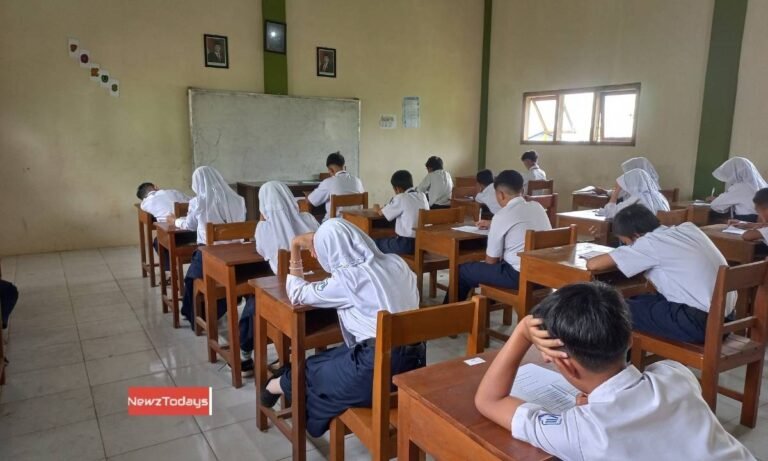M. Waqar Bhatti
Islamabad: Terming the inclusion of ‘baby food manufacturing industries’ in policy-making as unethical with conflict of interest, United Nations Children’s Fund (UNICEF), World Health Organization (WHO), and the Pakistan Pediatric Association (PPA) have urged Pakistani authorities not to include baby food manufacturing industries in any Nutrition Board.
They demand the withdrawal of notifications where the Formula Milk Industry is included as a member or implementer for public health and nutrition agendas led by government ministries.
This strong-worded statement on Friday follows the Punjab health ministry’s recent inclusion of two baby food manufacturing companies, Nestle and FrieslandCampina, in the ‘Punjab Nutrition Board.’
This decision was criticized by the federal health ministry and various national and international health organizations. “Inclusion of any conflicting entity (formula milk industry) in government-led coordination forums like the Infant Feeding Board or Nutrition Board is not advisable and is unethical due to conflicts of interest,” the joint statement from UNICEF, WHO, and PPA said.Health Ministry, UNICEF Criticize Dairy Giants on Punjab Nutrition Board
The statement emphasized the importance of breastfeeding for infant and maternal health, noting that breastfeeding is the optimal way to nourish infants and protect their health. Breast milk provides essential nutrients, antibodies, and enzymes that cannot be replicated in formula milk, promoting optimal growth, development, and immunity.
“Aggressive marketing tactics by formula milk companies can undermine breastfeeding practices and compromise infant health. Such practices exploit vulnerable populations and prioritize profit over the well-being of infants and mothers,” the joint statement added.
UNICEF, WHO, and PPA reiterated that formula milk carries risks, including a higher likelihood of infections, allergies, and chronic diseases compared to breast milk.
They stressed that limiting the promotion of formula milk is crucial to safeguarding infant health and that companies producing baby formula milk should not be part of any forum consulting on good nutrition for children and mothers due to the conflict of interest.
The statement also called for implementing and enforcing regulations to restrict the marketing, advertising, and distribution of formula milk products and to avoid the influence of formula milk-producing companies.
The organizations affirmed the commitment of governments, international organizations, and civil society to prioritize breastfeeding as a public health imperative.
They recommended that the government at federal, provincial, and district levels should not encourage the formula milk industry to be part of public health and nutrition interventions from policy to implementation levels.
This includes allocating resources, joining any nutrition board, committee, or forum, and implementing and advising on nutrition policies and programs that support the nutrition agenda in Pakistan.
“We must establish mechanisms to monitor the implementation and impact of breastfeeding promotion efforts, including tracking breastfeeding rates, monitoring compliance with regulations, and assessing the effectiveness of support interventions to improve the nutritional status,” the statement added.
In principle, the development of effective policy, normative, and guidance processes, and frameworks must be free of conflict of interest, they suggested.
The involvement of such industries in public policymaking, norm-setting, program guidance, program implementation, research, and evaluation processes has been observed to open doors for violating the International Code of Marketing Breast-milk Substitutes and related World Health Assembly resolutions (the Code).
This aligns with the Sixty-Ninth World Health Assembly A69/7, and Pakistan has committed to the World Health Assembly resolutions and Sustainable Development Goals aimed at addressing malnutrition in the country.
“Therefore, UNICEF, WHO, and PPA call for adherence to internationally agreed principles regarding breastmilk substitutes (BMS) industries”, the organizations said and specifically requested all partners, including government line ministries, commit to the protection, promotion, and support of optimal breastfeeding for children aged 0 to 24 months, with timely introduction of complementary feeding after the period of exclusive breastfeeding at the end of 6 months, continuing until the age of 36 months.
“Government ministries should control the inappropriate use of BMS/powdered milk, which is unsafe, expensive, and detrimental to the health of children, by NOT calling for support from Baby Food Manufacturing Industries,” the statement said.
This includes not making them a member of any Nutrition Board, promoting, accepting, or distributing donations of BMS, including infant formula, other milk products, complementary foods, and feeding equipment such as bottles and teats.
The statement concluded with a call for the removal or reversal of any notifications or interventions where the Formula Milk Industry is included as a member or implementer for public health and nutrition agendas led by government ministries.




